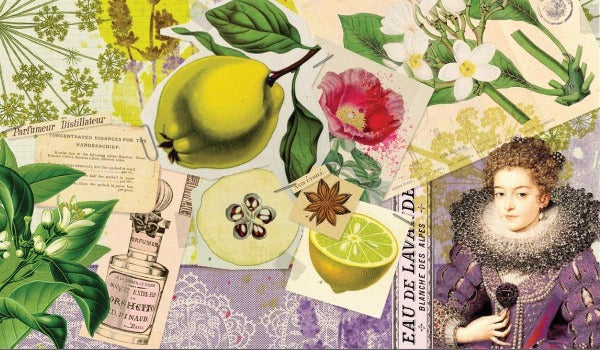
Fragranced Fibres

Smells contain worlds of information, condensing time, culture and distance. Combined with textiles and costume, smell provides a potent link to the past. It’s a sense that bypasses our intellect, going directly to the hypothalamus. In this more primal part of the brain, it has an immediate emotional impact quite different from most thoughts, sights and sounds. We humans absorb and store some information more easily through this sense and remember it better. The sense is – or used to be – so important that, unlike other nerve cells, the olfactory neurons constantly replace themselves. When you notice an odour, you unlock a subjective dimension or a sensory experience inside the body – this doesn’t happen if you merely look at something. Smells can create a sense of anticipation and a memory of the past – and gaining access to hidden or forgotten parts of our own history is a gift indeed.
Inventories, tailors’ bills, wardrobe lists, doctors’ accounts, dyers’ manuals, recipe books for housewives and other sources provide scattered but reliable information about the practice of perfuming textiles. In them, we discover fragranced gloves, linens, underclothes, leather goods, wigs, furs, ink and book bindings.

Perfume was also universally included in textile storage, from the lavender sachets in the linen cupboards of Europe to the patchouli leaves packed between bundled Kashmir shawls en route from India. Both Henry VIII and Queen Elizabeth I of England used sweet bags to keep their furs smelling pleasant, and leather garments and books were traditionally re-perfumed in ornate steel fuming pans. Storage chests of redwood cedar reduced insect infestation because of the fragrant, potent fumes and apples and quinces were also kept in wardrobes for their aroma.
Smells are culturally rather than physiologically defined. One system assigns seven basic qualities to smells: ethereal, prickly, floral, minty, camphor, musk, and rotten, although other systems include such elements as garlic-like, aromatic, burnt, animal and billy-goat. The word perfume comes from ‘per fumar’: literally, ‘from the smoke’.
Extract from the Migration issue, words by Katia Johansen. Images by Macrina Busato.
